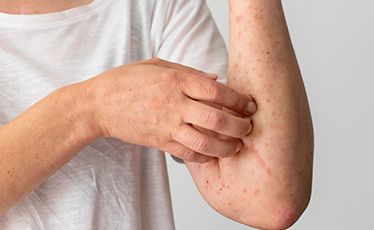+62 811-1300-9840
Understanding Polio: Definition, Symptoms, Types, and Polio
Oleh: dr. Anton Dharma Saputra, Sp.A
Dokter Spesialis Anak RS Premier Jatinegara

What is Polio?
Poliomyelitis or known as "polio" is an acute viral infection that can attack the muscle nerves and can cause paralysis or acute flaccid paralysis. Transmission through fecal-oral, usually starting from the environment or water contaminated with the polio virus. The virus that enters will develop in the digestive tract, then attack the nerve cells in the muscles. Incubation 7-21 days until the onset of paralysis occurs.
Symptoms of Polio Infection
Symptoms can vary greatly, from non-specific symptoms such as influenza virus infection, to severe ones that attack the muscle nerves and cause paralysis. Mild symptoms last 24-48 hours, and are non-specific.
Severe symptoms appear on days 2-5, initially marked by local muscle pain, muscle twitching, loss of tendon reflexes, and paralysis appearing a few days later.
Why Can It Be Marked as an Extraordinary Event (KLB) in Indonesia?
Indonesia has been declared polio-free by the World Health Organization (WHO) since 2014, therefore even 1 case is considered an outbreak in Indonesia. Initially at the end of 2022, a type 2 polio outbreak occurred in Aceh. Then in early 2023, it occurred in Purwakarta, West Java. And in mid-2023, several cases of type 2 polio were found in Central Java and East Java.
Types of Polio Vaccination in Indonesia
There are 2 types of polio vaccines in Indonesia:
1. Oral Dosage Form Vaccination or Polio Drops (OPV)
This vaccine is given four (4) times at the ages of 0-1, 2, 3, & 4 years.
Contains 2 strains of weakened polio virus types 1 and 3.
2. Injectable Vaccination or Inactivated Polio Vaccine (IPV)
Given 2 times at the ages of 4 and 9 months.
Contains 3 types of dead viruses, from types 1, 2, and 3.
Injectable polio vaccine is also often formulated in one preparation with DPT vaccine.
Oral or drop type vaccine provides protection in the digestive tract mucosa, but only provides protection against polio viruses 1 and 3, so babies who have received the oral type vaccine must still receive the injected polio vaccine to protect against polio virus type 2.
Availability of Drugs for Polio If Paralysis Has Occurred
Currently, therapy for polio patients is only supportive, by reducing pain and physiotherapy to maintain muscle strength. Until now, there has been no antiviral drug for the polio virus. And the paralysis that occurs cannot return to normal.
National Immunization Week (PIN) Polio Schedule in Jakarta
Given 2 doses with a minimum gap of 2 weeks between immunizations.
Dose 1: July 23 – July 29, 2024
Sweeping: July 30 – August 5, 2024
Dose 2: August 6 – August 12, 2024
Sweeping: August 13 – August 19, 2024
Who Should Not Get Polio PIN?
Polio Drops immunization is postponed for children who have fever and diarrhea until the child recovers. Polio Drops immunization is not given to:
Infants weighing less than 2000 grams
Children with immune system disorders
Children who are undergoing long-term treatment such as cancer
Children with HIV
Children who live in the same house as someone with an immune system disorder or HIV. Children with immune system disorders and HIV are given polio injections.
Why is Polio PIN Given Only to Children Under 0 - 7 years 11 months 30 days?
This is because, in Indonesia before 2016, they were still using tOPV (Trivalent Oral Polio Vaccine), and only in 2016, Indonesia along with other countries in the world used bOPV (Bivalent Oral Polio Vaccine), following WHO recommendations. So that children born from 2016 until now have not received OPV containing polio strain type 2.
Therefore, the current PIN polio target is aimed at children under 8 years and 1 day old.
For information and to make an appointment with a doctor, contact:
- Contact Centre: 1 500 908
- WhatsApp Chatbot Appointment: +62 8122 2309 911
| Loading data... |
|---|



















